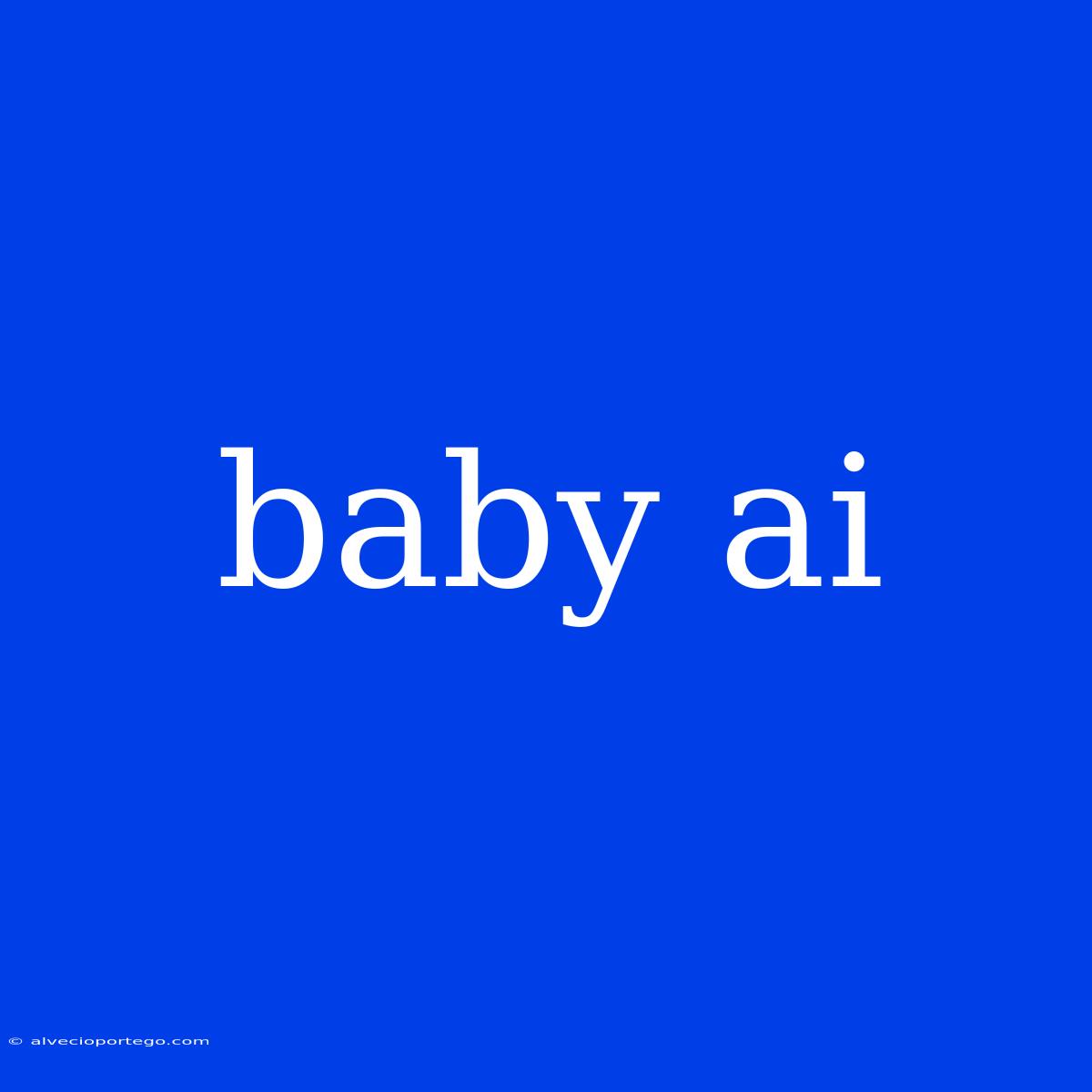Baby AI: The Future of Learning and Development?
The field of artificial intelligence (AI) is rapidly evolving, with new breakthroughs emerging seemingly every day. One of the most fascinating and potentially impactful areas of AI research is the development of "baby AI" – AI systems modeled after the learning capabilities of human infants.
Why "Baby AI"?
Human infants are born with an incredible capacity for learning. They quickly acquire language, recognize objects, and develop complex social skills, all while navigating a world filled with sensory information. The goal of baby AI is to replicate this remarkable ability in artificial systems.
By mimicking the learning process of human babies, researchers aim to create AI that:
- Learns from limited and unstructured data: Unlike traditional AI, which often relies on massive datasets, baby AI can learn from small amounts of data, much like a baby learning from everyday experiences.
- Develops general intelligence: Instead of being specialized for a single task, baby AI could potentially achieve general intelligence, capable of adapting to various situations and learning new tasks without explicit programming.
- Understands the world in a more natural way: By emulating the sensory and cognitive processes of humans, baby AI could gain a deeper understanding of the world, leading to more intuitive and human-like interactions.
How Does Baby AI Work?
Researchers are employing a variety of techniques to create baby AI, including:
- Neural networks: These interconnected networks of nodes, inspired by the human brain, allow baby AI to learn from data and make predictions.
- Reinforcement learning: This technique allows AI systems to learn through trial and error, receiving rewards for positive actions and penalties for negative ones.
- Developmental robotics: Robots are designed to interact with their environment and learn through exploration, similar to how human babies develop.
The Potential Benefits of Baby AI
The development of baby AI could revolutionize various fields, including:
- Education: AI tutors that can adapt to individual learning styles and pace.
- Healthcare: AI systems that can diagnose diseases earlier and offer personalized treatment plans.
- Robotics: Robots that can collaborate with humans more effectively and learn new tasks on the fly.
- Customer service: Chatbots that can understand and respond to customer needs more naturally.
Challenges and Ethical Considerations
Despite the potential benefits, the development of baby AI also poses several challenges and ethical considerations:
- Bias and fairness: AI systems trained on limited data can inherit and amplify biases present in that data.
- Privacy: The collection and analysis of data from interacting with baby AI systems raise concerns about privacy and data security.
- Control and safety: Ensuring that baby AI systems operate safely and ethically is crucial, especially as they become more sophisticated.
The Future of Baby AI
The field of baby AI is still in its early stages, but its potential is vast. As research progresses, we can expect to see breakthroughs in AI capabilities, leading to more intelligent and adaptable systems that can better understand and interact with the world around them.
The development of baby AI represents a significant step towards creating AI systems that are not just intelligent, but also human-like in their ability to learn, adapt, and grow.

